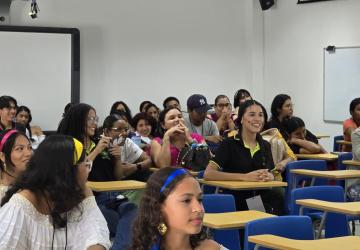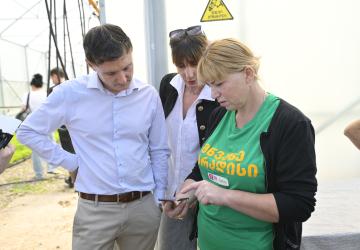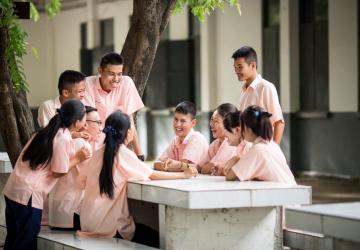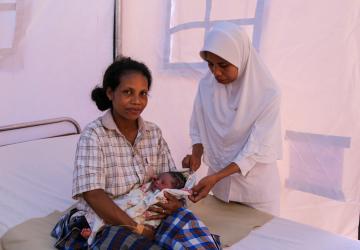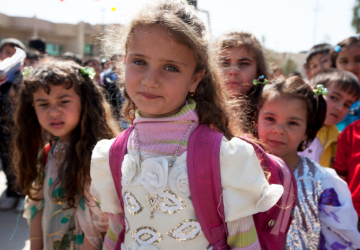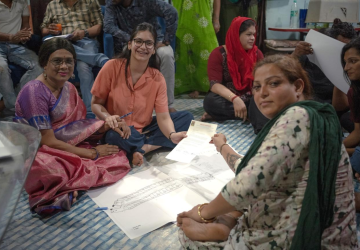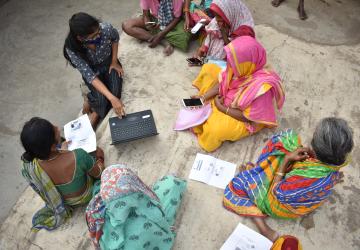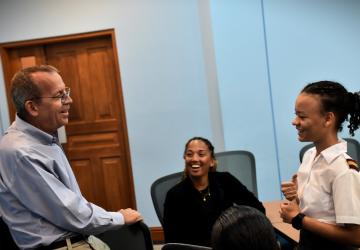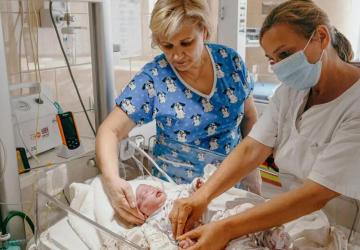UN Deputy Chief Commends RCs in Europe and Central Asia for Driving Progress on SDGs
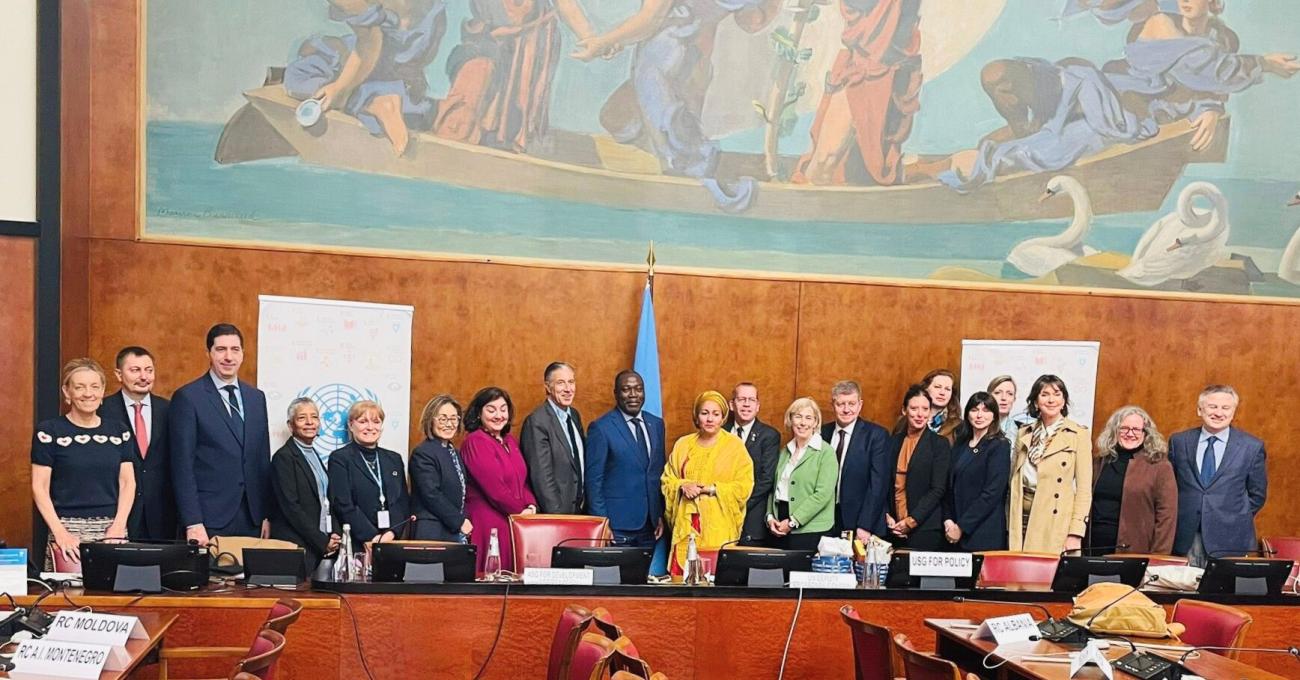
The UN Deputy Secretary-General Amina J. Mohammed convened the annual meeting with UN Resident Coordinators (RCs) from Europe and Central Asia on 13 March in Geneva. The exchange focused on RC efforts to bolster Member States' capacity to achieve their national development priorities and implement the Sustainable Development Goals (SDGs). The meeting served as a valuable opportunity to assess progress, particularly in the lead-up to the upcoming Summit of the Future. Ms. Mohammed was accompanied by Under-Secretary-General for Policy Guy Ryder, Assistant Secretary-General for the Development Coordination Office Oscar Fernandez-Taranco and Regional Director for Europe and Central Asia for the Development Coordination Office Gwi Yeop Son.
Noting the diversity of the Europe and Central Asia region, the Deputy Chief underscored the crucial role of RCs in enabling governments to implement the SDGs. She stressed the importance of developing tailored strategies that reflect each country’s unique needs and challenges.
Mr. Ryder briefed the RCs on the process leading up to the Summit of the Future and its proposed Pact of the Future. He highlighted the critical role of civil society in advocating for a robust Pact that would strengthen multilateral cooperation and hold countries accountable for achieving the SDGs.
RCs in Action
RCs from across Europe and Central Asia shared concrete examples of how they, along with their UN Country Teams (UNCTs), are supporting countries’ needs and priorities while driving progress towards the SDGs.
A collaborative effort led by RC Rossana Dudziak is transforming North Macedonia's approach to data and demographics. By drawing on the expertise of the UNCT, they are addressing critical data gaps in demographics and migration. This collaboration is enabling informed policy decisions and progress on sustainable development.
The RC in Kazakhstan Michaela Friberg-Storey noted the country’s high water consumption rate compared to global averaged. “Water consumption in Kazakhstan today is approximately 3,500 liters per person, which is significantly higher compared to around 800 liters in Germany or 360 liters in the UK. This places Kazakhstan as the 11th largest water consumer in the world per capita,” she said. Against this backdrop, the RC underlined the pivotal role of joint efforts of the UNCT, with the support of Issue-Based Coalition on Environment and Climate Change in providing policy advice to the Government on the new water code, activating one of the engine room actions of coherent policy support to advance the SDGs.
In a similar vein, given Turkmenistan’s vital role in global gas reserves and its contribution to the country, coordinated joint UN efforts and advocacy, under the leadership of the RC in Turkmenistan, Dmitry Shlapachenko, culminated in the country joining in the Global Methane Pledge for methane reduction. This demonstrated Turkmenistan’s commitment to the SDGs, with the initiation of a pilot project and discussion on the potential collaborations with members of the European Union.
The RC in Georgia Sabine Machl emphasized the need for reforms to create jobs and provide social protection. Efforts in Georgia involved collaboration and coordination between the UNCT and development partners to address unemployment and promote sustainable growth, including mapping of interventions to optimize social protection efforts.
In Albania, the UNCT led by RC Fiona McCluney, is spearheading efforts to support digital transformation initiatives. These initiatives aim to address the pressing need for digital skills and achieve inclusive development, ensuring no one is left behind.
The UN INFO platform is playing a key role in Moldova's pursuit of the SDGs, as emphasized by RC Simon Springett. This platform goes beyond simply informing governments about progress on Cooperation Frameworks. It actively supports strategic decision-making to accelerate progress on the SDGs.
Commending the structured format of the UN Food Systems Coordination Hub, the RC in Serbia Françoise Jacob noted that “food systems transformation requires a lot of muscles to move the transition forward. And this is where the role of the RC is important.” She facilitated engagement with the government in Serbia, notably, for planning, monitoring and implementing the national pathways for food systems transformation.
The acting RC in Montenegro Vladimir Gjorgjiev noted that “education is one of the main drivers for development and the strongest instrument producing quality social inclusion including health, gender equality, peace and stability.” He highlighted the significant role of creating a “deal room” through collective UN efforts and strong partnership with development partners, civil society and the government to accelerate the transformation of education. He further noted that establishment of the Montenegro SDG Acceleration Fund was the result of collective efforts, showcasing effective use of strategic partnership and innovative financing to accelerate the SDGs.
With Azerbaijan hosting COP29 this year, the RC Vladanka Andreeva, noted the country's ambitious goal to transition from gas and oil exportation to renewable energy production, with a call for coordinated UN support. She stressed the importance of cross-border collaboration and joint programmes and at the country level, aiming to align national priorities with the 2030 Agenda.
The RC in Türkiye Babatunde Ahonsi emphasized the importance of supporting key transitions in the region, particularly for Türkiye as a high-middle-income country. He highlighted the opportunity for the UN to leverage its technical expertise and assist the government in accelerating progress on the SDGs. This collaboration could ensure that key policy issues are addressed promoting inclusive and sustainable development for all, leaving no one behind.
Additional interventions focused on the urgent need to tackle climate change, biodiversity loss, and pollution. Participants emphasized the importance of a comprehensive approach for policy reform, technology and innovation in support for the SDGs.
DCO Regional Director for Europe and Central Asia Ms. Gwi Yeop Son noted that RCs are pivotal in enabling governments to achieve sustainable development and the 2030 Agenda amidst geopolitical uncertainties. She concluded that RCs remain committed to upholding the principles of the UN Charter and finding solutions anchored in neutrality and cooperation to achieve the SDGs by 2030.


